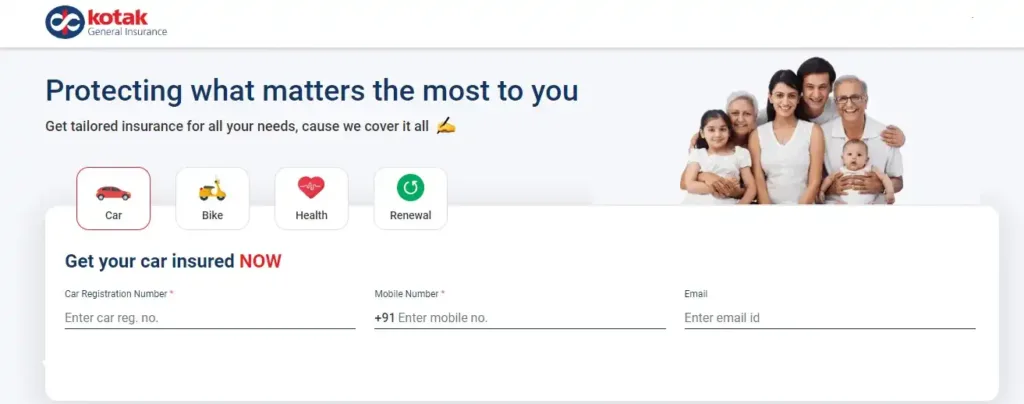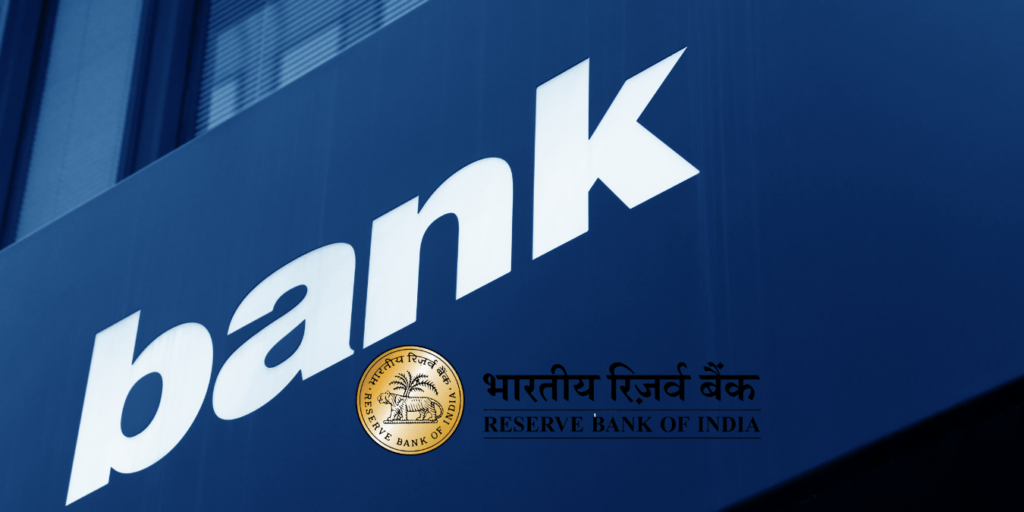
Introduction
Group insurance is a type of insurance that covers a group of people, usually employees of a company or members of an organization. Group insurance can offer benefits such as lower premiums, tax deductions, and coverage for dependents. However, group insurance also has some drawbacks, such as lack of control, inadequate coverage, and loss of coverage when leaving the job or group. There are different types of group insurance policies available in India, such as group health insurance, group personal accident insurance, group pension/superannuation insurance, group employee deposit linked insurance (EDLI), workmen/employee compensation insurance, group travel insurance, and public liability insurance. Each type of policy has its own features and benefits for the employer and the employee.
Here are some points to consider before opting for a group insurance policy.
- Group insurance policy can provide coverage for medical expenses, life insurance, and disability benefits. However, the coverage amount may not be sufficient for your individual needs. For example, the death benefit of a group life insurance policy is usually lower than that of an individual policy. You may need to buy additional insurance to supplement your group policy.
- Group insurance policy is tied to your job or membership. If you leave your job or organization, you may lose your coverage or have to pay a higher premium to continue it. Some group policies are portable, which means you can keep them after leaving the job, but not all policies offer this option. You may also lose your coverage if your employer decides to discontinue or change the policy.
- Group insurance policy is controlled by your employer or organization. You have little to no say in the terms and conditions of the policy. You may not be able to choose the insurer, the network of hospitals, the type of coverage, or the exclusions. You may also have to follow certain rules and procedures to claim your benefits.
- Group insurance policy may not offer tax benefits for you. The premium paid by your employer is deductible from their taxable income, but not from yours. You may also have to pay tax on the benefits you receive from the policy, depending on the type and amount of coverage.
- Group insurance policy can be beneficial if you have pre-existing medical conditions or are in a high-risk category. Group policies do not require medical underwriting or waiting periods, which means you can get coverage without any exclusions or restrictions. Group policies also cover maternity and newborn baby expenses, which may not be covered by individual policies.
To summarize, group insurance policy has its pros and cons. You should weigh them carefully and compare them with other options before making a decision.
What are the different types of group insurance policies?
Group insurance is a type of insurance that covers a group of people, usually employees of a company or members of an organization. Group insurance can offer benefits such as lower premiums, tax deductions, and coverage for dependents. However, group insurance also has some drawbacks, such as lack of control, inadequate coverage, and loss of coverage when leaving the job. There are different types of group insurance policies available in India, such as:
- Group health insurance: This type of policy provides health insurance cover for the group members and their families. It covers medical expenses, hospitalization, pre-existing diseases, maternity, and newborn baby expenses. It may also offer cashless treatment or reimbursement of medical bills.
- Group personal accident insurance: This type of policy compensates the group members in case they suffer from accidental injuries or death during their employment. It covers medical expenses, disability benefits, and death benefits. It may also offer additional benefits such as education fund, funeral expenses, and loan protection.
- Group pension/superannuation insurance: This type of policy provides retirement benefits for the group members. It is a fund-based scheme that accumulates contributions from the employer and the employee and pays out a regular income after retirement. It may also offer death benefits, disability benefits, and surrender benefits.
- Group employee deposit linked insurance (EDLI): This type of policy is linked to the employee provident fund (EPF) scheme. It provides a lump sum amount to the nominee of the group member in case of death due to any cause. The amount is calculated based on the salary and the EPF balance of the group member.
- Workmen/employee compensation insurance: This type of policy covers the legal liability of the employer in case of injury or death of the group member due to an accident arising out of and in the course of employment. It covers medical expenses, disability benefits, and death benefits as per the Workmen’s Compensation Act 1987.
- Group travel insurance: This type of policy covers the risks faced by the group members while traveling for business or leisure purposes. It covers medical expenses, personal accident, loss or delay of baggage, loss or theft of documents, trip cancellation or interruption, and emergency evacuation.
- Public liability insurance: This type of policy covers the legal liability of the group owner or administrator in case of injury or damage caused to a third party due to the negligence or fault of the group members. It covers legal expenses, compensation, and costs awarded by the court.

What are the Pros and Cons of group insurance policies?
Group insurance policy can offer benefits such as lower premiums, tax deductions, and coverage for dependents. However, group insurance policy also has some drawbacks, such as lack of control, inadequate coverage, and loss of coverage when leaving the job. Here are some of the pros and cons of group insurance policy:
Pros:
- Group insurance policy can provide coverage for medical expenses, life insurance, and disability benefits. However, the coverage amount may not be sufficient for your individual needs. For example, the death benefit of a group life insurance policy is usually lower than that of an individual policy.
- Group insurance policy is cheaper than individual policies, as the premium is shared among the group members and paid by the employer or the group secretary. Individual insurance policies require you to pay the entire premium yourself, which may be higher depending on your age, health condition, and lifestyle.
- Group insurance policy does not require medical underwriting or waiting periods, which means you can get coverage without any exclusions or restrictions. Group policies also cover pre-existing diseases from day one, which may not be covered by individual policies until a certain period of time.
- Group insurance policy can offer tax benefits for the employer or the group secretary, as the premium paid by them is deductible from their taxable income. This can reduce their tax liability and increase their profits.
Cons:
- Group insurance policy is tied to your job or membership. If you leave your job or organization, you may lose your coverage or have to pay a higher premium to continue it. Some group policies are portable, which means you can keep them after leaving the job, but not all policies offer this option. You may also lose your coverage if your employer decides to discontinue or change the policy.
- Group insurance policy is controlled by your employer or organization. You have little to no say in the terms and conditions of the policy. You may not be able to choose the insurer, the network of hospitals, the type of coverage, or the exclusions. You may also have to follow certain rules and procedures to claim your benefits.
- Group insurance policy may not offer tax benefits for you. The premium paid by your employer is deductible from their taxable income, but not from yours. You may also have to pay tax on the benefits you receive from the policy, depending on the type and amount of coverage.
- Group insurance policy may not cover all your needs and preferences. You may need to buy additional insurance to supplement your group policy. For example, group policies do not offer critical illness cover, maternity benefit, or no claim bonus, which are available in individual policies if opted by the policyholder.
How do I Compare group and individual insurance policies?
To compare group and individual insurance policies, you need to consider several factors, such as the coverage, the cost, the benefits, the control, and the security of each type of policy. Here are some points to help you compare them:
- Coverage: Group insurance policies usually offer basic coverage for medical expenses, life insurance, and disability benefits. However, the coverage amount may not be sufficient for your individual needs. Individual insurance policies allow you to choose the type and amount of coverage that suits your specific requirements. You can also opt for add-ons such as critical illness cover, maternity benefit, etc., which may not be available in group policies.
- Cost: Group insurance policies are usually cheaper than individual policies, as the premium is shared among the group members and paid by the employer or the group secretary. Individual insurance policies require you to pay the entire premium yourself, which may be higher depending on your age, health condition, and lifestyle. However, individual policies also offer tax benefits, which can reduce your taxable income and save you money.
- Benefits: Group insurance policies do not require medical underwriting or waiting periods, which means you can get coverage without any exclusions or restrictions. Group policies also cover pre-existing diseases from day one, which may not be covered by individual policies until a certain period of time. However, individual policies offer no claim bonus, which can increase your sum insured or reduce your premium if you do not make any claims in a policy year.
- Control: Individual insurance policies give you full control over the terms and conditions of the policy. You can choose the insurer, the network of hospitals, the type of coverage, and the exclusions. You can also modify or cancel your policy at any time. Group insurance policies are controlled by your employer or group secretary, who decides the coverage and add-ons of the policy. You have little to no say in the policy details and have to follow certain rules and procedures to claim your benefits.
- Security: Group insurance policies are tied to your job or membership. If you leave your job or group, you may lose your coverage or have to pay a higher premium to continue it. Some group policies are portable, which means you can keep them after leaving the job, but not all policies offer this option. Individual insurance policies are independent of your employment or membership status. You can keep your policy as long as you pay the premium and renew it on time.
These are some of the main differences between group and individual insurance policies.
Table helps you understand some of the differences between group and individual insurance policies.
| Feature | Group Insurance Policy | Individual Insurance Policy |
|---|---|---|
| Coverage | Covers a group of people, usually employees of a company or members of an organization | Covers only one person, the policyholder |
| Purchaser | Purchased by the employer or the group secretary | Purchased by the policyholder |
| Control | Limited control by the insured, as the coverage and add-ons are decided by the purchaser | Full control by the policyholder, who can choose the coverage and add-ons |
| Cost | Cheaper than individual policies, as the premium is shared among the group members and paid by the purchaser | More expensive than group policies, as the premium is paid by the policyholder alone |
| Tax Benefit | No tax benefit for the insured, as the premium is deductible from the purchaser’s taxable income | Tax benefit for the policyholder, as the premium is deductible from their taxable income |
| Pre-existing Diseases | Covered from day one, without any waiting period or exclusions | Covered after a waiting period of 2 to 4 years, depending on the policy terms |
| Maternity Benefit | Available in most group policies | May or may not be available in individual policies |
| Critical Illness Cover | Not available in group policies | Available in individual policies if opted by the policyholder |
| No Claim Bonus | Not available in group policies | Available in individual policies, which can increase the sum insured or reduce the premium |
| Security | Tied to the job or membership status, which means losing coverage or paying a higher premium when leaving the job or group | Independent of the employment or membership status, which means keeping coverage as long as paying the premium and renewing on time |
Should we take individual policy with group policy
Whether you should take an individual policy with a group policy depends on your personal needs and preferences. Group health insurance policies are designed to provide coverage for a specific group of individuals, commonly offered as an employment benefit. Employers typically extend this benefit to their employees, who may also have the option to include their family members, such as spouses, parents, children, or parents-in-law, under the same policy. However, group health insurance policies also have some limitations, such as:
- The coverage amount may not be sufficient for your individual needs. For example, the death benefit of a group life insurance policy is usually lower than that of an individual policy. You may need to buy additional insurance to supplement your group policy.
- The coverage is tied to your job or membership. If you leave your job or organization, you may lose your coverage or have to pay a higher premium to continue it. Some group policies are portable, which means you can keep them after leaving the job, but not all policies offer this option. You may also lose your coverage if your employer decides to discontinue or change the policy.
- The coverage is controlled by your employer or organization. You have little to no say in the terms and conditions of the policy. You may not be able to choose the insurer, the network of hospitals, the type of coverage, or the exclusions. You may also have to follow certain rules and procedures to claim your benefits.
- The coverage may not offer tax benefits for you. The premium paid by your employer is deductible from their taxable income, but not from yours. You may also have to pay tax on the benefits you receive from the policy, depending on the type and amount of coverage.
On the other hand, an individual health insurance policy covers only one person i.e. the policyholder. This type of policy is purchased by individuals and families. The policy is issued to the person buying the policy, who becomes the policyholder. Individual health insurance policies offer some advantages over group health insurance policies, such as:
- The coverage amount can be customized according to your individual needs and preferences. You can choose the type and amount of coverage that suits your specific requirements. You can also opt for add-ons such as critical illness cover, maternity benefit, etc., which may not be available in group policies.
- The coverage is independent of your employment or membership status. You can keep your policy as long as you pay the premium and renew it on time. You do not have to worry about losing your coverage if you change your job or leave your organization.
- The coverage is controlled by you. You can choose the insurer, the network of hospitals, the type of coverage, and the exclusions. You can also modify or cancel your policy at any time.
- The coverage offers tax benefits for you. The premium paid by you is deductible from your taxable income under Section 80D of the Income Tax Act. You do not have to pay tax on the benefits you receive from the policy, unless they exceed a certain limit.
However, individual health insurance policies also have some drawbacks, such as:
- The premium is higher than group health insurance policies, as you have to pay the entire premium yourself, which may be higher depending on your age, health condition, and lifestyle.
- The coverage requires medical underwriting or waiting periods, which means you may have to undergo medical tests or wait for a certain period of time before getting coverage for some diseases or conditions. Group policies do not require these formalities and cover pre-existing diseases from day one.
Group insurance benefits for Employer and Employee
Group insurance is a type of insurance that covers a group of people, usually employees of a company or members of an organization. Group insurance can offer benefits to both the employer and the employee, depending on the type and extent of the coverage. Here are some of the benefits of group insurance for both parties:
For the employer:
- Group insurance can help attract and retain talented employees, as it shows that the employer cares about their health and well-being.
- Group insurance can reduce absenteeism and increase productivity, as employees are more likely to seek timely medical care and recover faster from illnesses or injuries.
- Group insurance can provide tax benefits to the employer, as the premium paid by them is deductible from their taxable income. Some smaller businesses may also qualify for the small business health care tax credit.
For the employee:
- Group insurance can provide health and financial security to the employee and their dependents, as it covers medical expenses, hospitalization, pre-existing diseases, maternity and new born baby expenses, etc.
- Group insurance can offer lower premiums and better coverage than individual policies, as the risk is shared among the group members and the insurer offers discounts or incentives to the employer.
- Group insurance can offer convenience and flexibility to the employee, as they do not have to undergo medical underwriting or waiting periods, and they can choose from different plans or add-ons offered by the employer.
Some of the top group insurance provider companies in India are:
- Aditya Birla Group Health Insurance:

This Company offers group health insurance plans that cover medical expenses, hospitalization, pre-existing diseases, maternity, and newborn baby expenses. It has an incurred claim ratio of 94% and a network of over 6000 hospitals.
- Bajaj Allianz Group Health Insurance:

This Company offers group health insurance plans that cover medical expenses, personal accident, loss or delay of baggage, loss or theft of documents, trip cancellation or interruption, and emergency evacuation. It has an incurred claim ratio of 98% and a network of over 6500 hospitals.
- Bharti AXA Group Health Insurance:

This Company offers group health insurance plans that cover medical expenses, hospitalization, pre-existing diseases, maternity, and newborn baby expenses. It also offers critical illness cover, maternity benefit, and no claim bonus. It has an incurred claim ratio of 89% and a network of over 4500 hospitals.
- Cholamandalam MS Group Health Insurance:

This Company offers group health insurance plans that cover medical expenses, hospitalization, pre-existing diseases, maternity, and newborn baby expenses. It also offers cashless treatment or reimbursement of medical bills. It has an incurred claim ratio of 95% and a network of over 8100 hospitals.
- Digit Group Health Insurance:

This Company offers group health insurance plans that cover medical expenses, hospitalization, pre-existing diseases, maternity, and newborn baby expenses. It also offers paperless claims and zero waiting period. It has an incurred claim ratio of 96% and a network of over 5900 hospitals.
- Future Generali Group Health Insurance:

This Company offers group health insurance plans that cover medical expenses, hospitalization, pre-existing diseases, maternity, and newborn baby expenses. It also offers cashless treatment or reimbursement of medical bills. It has an incurred claim ratio of 73% and a network of over 5100 hospitals.
- IFFCO Tokio Group Health Insurance:

This Company offers group health insurance plans that cover medical expenses, hospitalization, pre-existing diseases, maternity, and newborn baby expenses. It also offers cashless treatment or reimbursement of medical bills. It has an incurred claim ratio of 102% and a network of over 5000 hospitals.
- Kotak Mahindra Group Health Insurance:

This Company offers group health insurance plans that cover medical expenses, hospitalization, pre-existing diseases, maternity, and newborn baby expenses. It also offers cashless treatment or reimbursement of medical bills. It has an incurred claim ratio of 96% and a network of over 4800 hospitals.
- Liberty Group Health Insurance:

This Company offers group health insurance plans that cover medical expenses, hospitalization, pre-existing diseases, maternity, and newborn baby expenses. It also offers cashless treatment or reimbursement of medical bills. It has an incurred claim ratio of 82% and a network of over 5000 hospitals.
- ManipalCigna Group Health Insurance:

This Company offers group health insurance plans that cover medical expenses, hospitalization, pre-existing diseases, maternity, and newborn baby expenses. It also offers cashless treatment or reimbursement of medical bills. It has an incurred claim ratio of 90% and a network of over 6500 hospitals.
Conclusion
Group insurance can benefit both the employer and the employee in different ways. However, group insurance also has some limitations, such as lack of control, inadequate coverage, and loss of coverage when leaving the job or group. Therefore, it is important to compare group insurance with other options and choose the one that best suits your needs and preferences. You can also consult a financial advisor or an insurance agent for more guidance.
Frequently Asked Questions (FAQ)
1. What is a group insurance policy?
- A group insurance policy is a type of insurance coverage provided to a group of people, typically employees of a company or members of an organization, as opposed to individuals purchasing insurance separately.
2. How does group insurance differ from individual insurance?
- Group insurance covers a collective group under a single policy, often with lower premiums and less stringent underwriting. Individual insurance is purchased independently and tailored to an individual’s specific needs.
3. What types of group insurance policies are available?
- Common types of group insurance include group health insurance, group life insurance, group disability insurance, and group dental or vision insurance.
4. Who typically sponsors group insurance policies?
- Employers are the most common sponsors of group insurance policies for their employees, but organizations, unions, and associations can also provide group coverage.
5. Are group insurance policies mandatory for employees?
- In many cases, employers may offer group insurance as part of their benefits package, but it’s not always mandatory for employees to enroll.
6. How are premiums calculated for group insurance policies?
- Premiums for group insurance are typically determined based on factors like the group’s size, demographics, location, and the type of coverage selected.
7. Do group insurance policies cover dependents?
- Yes, group insurance policies often provide the option to include dependents, such as spouses and children, in the coverage.
8. What are the advantages of group insurance policies for employers and employees?
- Group insurance offers cost savings, simplified enrolment, employer contributions, and often includes coverage for pre-existing conditions.
9. Can individuals maintain group insurance coverage after leaving a group, such as when changing jobs?
- In some cases, individuals can continue their group insurance coverage through options like COBRA (Consolidated Omnibus Budget Reconciliation Act) for a limited period, but this may involve higher costs.
10. What are some potential drawbacks or limitations of group insurance policies?
- Drawbacks may include limited customization, reduced control over coverage options, potential for coverage gaps, and dependence on the employer for maintaining coverage.
These frequently asked questions provide a broad overview of group insurance policies and their key aspects. Specific details may vary depending on the policy and the sponsoring entity.





























